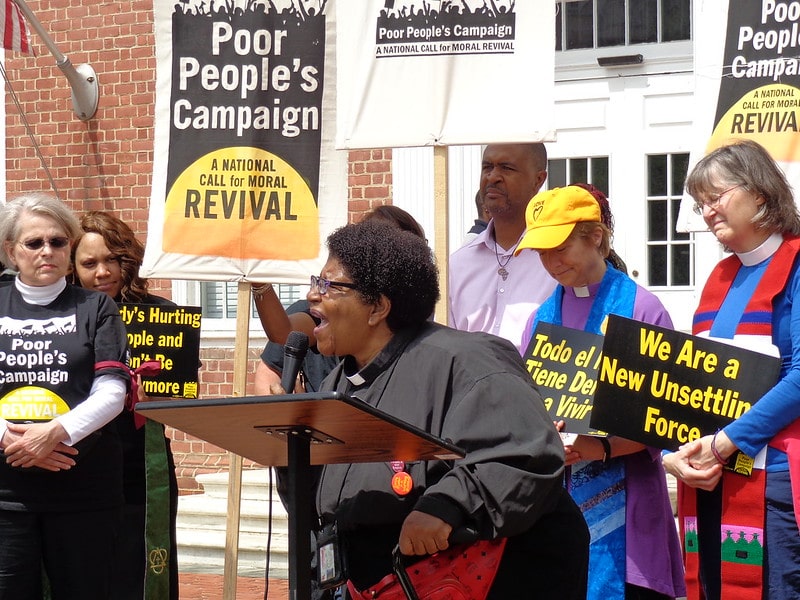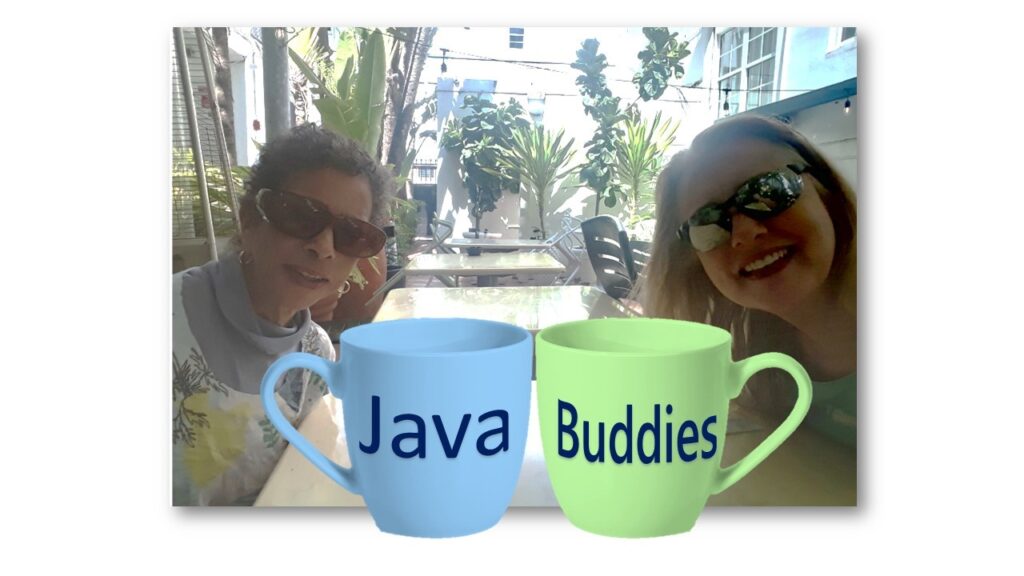This article was featured in the June 10 digital-only edition of Street Sense. Until it is safe to resume person-to-person sales, you’ll always be able to find the current digital-only edition at streetsensemedia.org/Digital Thank you for reading! Please continue to support our vendors through our mobile app (streetsensemedia.org/App).
D
espite the coronavirus pandemic and related closures across the country, the Poor People’s Campaign has found a way to take its march on Washington, scheduled for later this month, online.
For safety reasons, plans were changed. Instead of a physical gathering, what organizers describe as “the largest digital and social media gathering of poor and low-wealth people, moral and religious leaders, advocates, and people of conscience in this nation’s history“ will take place on Saturday, June 20.
“This is a moment of transition in this world, and how you are going to act right now is going to set up how you are going to act in the future,” said Zillah Wesley, the chair of the D.C. Poor People’s Campaign and regional coordinator for the Moral March on Washington in D.C., Maryland, and Virginia. “A lot of people think we’re going back to normal: we’re never going back to normal.”
Since its beginnings, the Mass Poor People’s Assembly and Moral March on Washington, which calls itself a campaign for moral revival, has been intended to be more than a march. The mass gathering is meant to highlight the disparities that marginalized groups face in America and galvanize people to fight for the campaign’s demands, which encompass voting rights, workers’ rights, welfare, health care, housing, education, indigenous sovereignty, disability rights, water and sanitation and peace. Representatives of diverse groups as well as public figures are scheduled to appear. The 2-hour event will be broadcast online at 10 a.m. and 6 p.m. on Saturday, June 20, and again on Sunday, June 21, at 6 p.m., according to the campaign’s website.
[Read more: Organizers say DMV residents tend to disproportionately “sit out” national marches in the District]
The campaign, begun in 2018, was named to honor the eponymous campaign and march on Washington that Martin Luther King, Jr,. began organizing in 1967 to end poverty in America. King led the original Poor People’s Campaign but was assassinated the next year. The revived effort keeps King’s goal in mind by striving to create a national, moral revolution of values to address systemic racism, inequality, mass incarceration, ecological devastation, and “military aggression and war-mongering.”.
People across the nation are sending in pre-recorded audio to be broadcast at the June 20 event, which will feature a mix of live shots and pre-recorded interviews. Organizers are working hard to make the event memorable, according to Wesley.

“I just gotta do a big shout to our media team and all the teams that are helping with this because it takes a lot to really put something like that on,” Wesley said. “As of now, they have 3,000 hours of footage that they’re editing down, and most of the people are doing this for free because they’re passionate about this.”
The inability to physically gather a large crowd has limited the number of people planning to attend, but organizers believe the digital event will have a big impact.
“Organizing around systemic transformation doesn’t happen overnight, and so the work that has been done has prepared the campaign for this moment,” said Rev. Glenna Huber, the rector of The Church of the Epiphany. “We’re organized, and now we’re ready to mobilize and that’s what the 20th is all about.”
[Disclosure: Street Sense Media rents office space from the Church of the Epiphany]
Huber is no stranger to the Poor People’s Campaign. On Feb. 29, she opened the doors of her church for one of the group’s mass meetings. Huber is actively making sure that those within her congregation are registered for the digital assembly.
[Read More: Poor people stand up: National campaign to build community and spark change stops in DC]
“One of the principles of organizing is don’t do for others what they can do for themselves, which I’ve been reminded of over and over again these past few weeks,” Huber said.
The Poor People’s Campaign is intentional about not letting those with privilege in society overpower the voices of those with firsthand experience with poverty, according to Huber.
“I’m indirectly impacted by homelessness and poverty, but there are people who are living the experience that can tell their own stories,” she said. “I would not want to speak on the 20th because there are people who can speak to their own experience and that’s part of shifting the narrative.”
COVID-19 and protests in response to the death of George Floyd, an unarmed Black man killed by a Minneapolis police officer, has created a national conversation about equality. The events show that not everyone is treated equally in America. One of the campaign’s main goals is to unite those from different backgrounds for a common goal of equality for all, regardless of socioeconomic status, race, religion or gender.
[Read more: Response to protests upends daily life for homeless people downtown]
According to its website, the campaign strives to change laws that have negatively targeted people of color, those who are poor, undocumented immigrants and various religious groups. Another goal is to provide a pathway to citizenship and ensure full voting rights for all citizens.
The campaign has a specific, though wide-ranging, platform and strategy. For example, on voting and citizenship, the platform states, “We demand the immediate full restoration and expansion of the Voting Rights Act, an end to racist gerrymandering and redistricting, early registration of 17 year olds, automatic voting registration at the age of 18, early voting in every state, same-day registration, the enactment of Election Day as a holiday, and a verifiable paper record. We demand the right to vote for the currently and formerly incarcerated.”
For some Americans, the fight to be seen as equal is a daily struggle. Others are just starting to see the gaps that exist in various systems within the country.

“Because of COVID-19 everyone was inside and they were forced to watch TV, watch their phones and see things that they wouldn’t normally see,” said Brenda Coles, a member of the Richmond, Virginia, chapter of the campaign. “I have been working in the criminal justice system for many years, so it’s not anything new to me.”
Coles has more than 39 years of experience working in civil rights and is serving her second term as the National Action Network’s (NAN) Richmond, Virginia, chapter president. NAN is a civil rights organization created by Rev. Al Sharpton in 1991.
On Thursday, June 4, at George Floyd’s memorial service, Sharpton announced his plan to organize another March on Washington. That event is planned for late August, on or near the anniversary of the original 1963 Moral March on Washington for Jobs and Freedom. The event will be led by families who have lost loved ones to police brutality.
“Yes, there will be a march and I’m sure I will be getting the information,” Coles said.
There are many factors that divide humans, but race is the main factor, according to Bernadette Brown-Lark, a member of Southwest Virginia’s chapter. Brown-Lark said that when racial tension dies down, it will be easier to solve more of the nation’s problems. Brown-Lark said she regularly receives life-saving blood transfusions and never asks the race of the donor.
“If they come back to me with the right blood type, do you think I would send them back to find Black blood?” she said. “Some people are so hate-filled they would have.”








